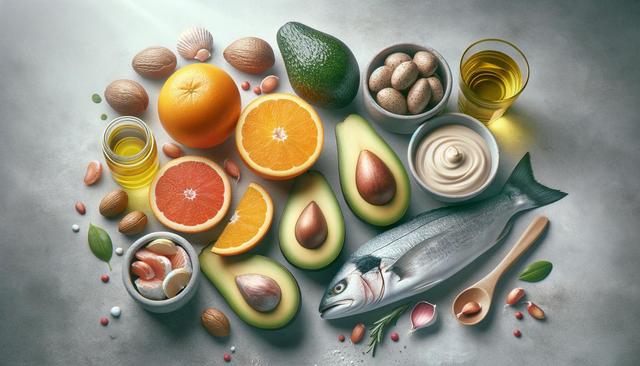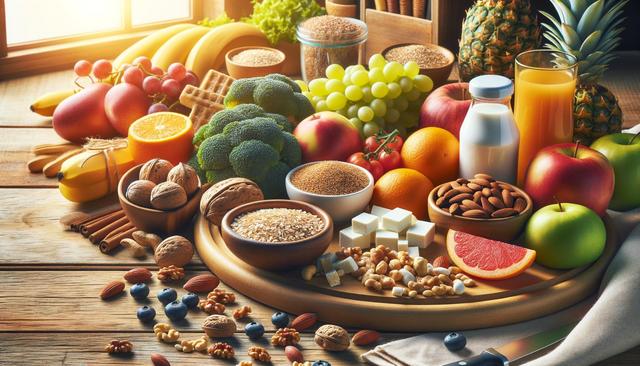Understanding Collagen and Why It Matters
Collagen is a vital protein that forms the structural basis of skin, hair, nails, joints, and connective tissues. As we age, our body’s natural collagen production begins to decline, leading to signs like wrinkles, joint discomfort, and reduced skin elasticity. Nutrition plays a fundamental role in supporting collagen synthesis, and incorporating certain foods into your diet can help maintain healthy levels of this crucial protein. The key is to focus not only on collagen-rich foods but also on those that provide nutrients required for collagen production, such as vitamin C, zinc, and amino acids.
Collagen is primarily made from three amino acids: glycine, proline, and hydroxyproline. These are found in protein-rich foods, and their synthesis is supported by vitamins and minerals obtained from a balanced diet. In addition to choosing foods that directly contribute to collagen production, it’s also important to avoid habits that break it down—like excess sugar consumption and smoking. A well-rounded approach that includes collagen-supportive foods can help keep your skin firm and your joints flexible.
Protein-Rich Foods that Provide Amino Acids
Protein sources are essential for collagen formation because they contain the amino acids needed to build collagen strands. Here are some protein-rich foods that can support your body’s collagen synthesis:
- Eggs – especially the whites, which are rich in proline
- Chicken – contains large amounts of collagen in connective tissues
- Fish – particularly the skin and bones, which are high in collagen
- Bone broth – made by simmering bones and connective tissues, this is a direct source of collagen peptides
These foods not only provide the building blocks of collagen but are also easy to include in various meals. Bone broth, for instance, can be sipped alone or used as a base for soups and stews. Eggs can be prepared in multiple ways, making them a versatile option for daily consumption. Including a variety of such protein sources ensures that your body receives a complete range of amino acids essential for collagen synthesis.
Vitamin C-Rich Fruits and Vegetables
Vitamin C is a key player in collagen production. It acts as a cofactor in the synthesis of collagen by helping to stabilize the collagen molecule. Without adequate vitamin C, the body cannot effectively produce or store collagen. Some fruits and vegetables high in vitamin C include:
- Citrus fruits like oranges, lemons, and grapefruits
- Strawberries and kiwis
- Bell peppers, especially red and yellow varieties
- Broccoli and Brussels sprouts
These foods are not only rich in vitamin C but also provide antioxidants that protect the skin from oxidative stress, which can degrade collagen. Regular consumption of these colorful fruits and vegetables supports both the production and preservation of collagen in the body. Eating a salad loaded with bell peppers and citrus dressing or blending a smoothie with strawberries and kiwi can be simple and effective ways to increase your intake.
Minerals That Support Collagen Formation
In addition to amino acids and vitamins, certain minerals play an essential role in the collagen-building process. Zinc and copper, in particular, are involved in activating enzymes that are required for collagen production. Here are some mineral-rich foods to consider:
- Shellfish such as oysters and crab (high in zinc)
- Nuts and seeds like pumpkin seeds and cashews (contain both zinc and copper)
- Legumes such as lentils and chickpeas
- Whole grains like oats and quinoa
These foods support the enzymatic reactions involved in collagen synthesis and also contribute to overall skin health. Including a handful of nuts as a snack or adding legumes to your meals can help ensure that your mineral intake supports healthy collagen levels. While supplements are available, obtaining these nutrients from whole foods allows for better absorption and additional health benefits from fiber and phytonutrients.
Lifestyle and Dietary Tips to Maximize Collagen Benefits
While eating collagen-boosting foods is important, how you consume them and other lifestyle choices can influence their effectiveness. Combining different types of nutrients in a single meal can enhance absorption and maximize benefits. For example, pairing vitamin C-rich foods with protein helps optimize collagen synthesis. In addition, staying hydrated supports skin elasticity and the transport of nutrients throughout the body.
Other tips to enhance collagen naturally include:
- Limiting processed sugar and refined carbohydrates, which can damage collagen through a process called glycation
- Protecting your skin from excessive sun exposure, as UV rays break down collagen
- Avoiding smoking and managing stress, both of which negatively impact collagen levels
Integrating collagen-supportive foods into a balanced diet, along with mindful lifestyle choices, creates a more effective approach to maintaining healthy skin and joints. Even small, consistent habits—like drinking water regularly and choosing whole foods over processed ones—can contribute significantly over time.
Conclusion: Nourishing Your Collagen from Within
Collagen plays a vital role in maintaining the structure and youthfulness of your body, and supporting its production through diet is a practical and sustainable approach. By incorporating foods rich in amino acids, vitamin C, and essential minerals, you can naturally promote collagen synthesis and protect what your body already has. Whether you’re focused on skin health, joint function, or overall vitality, the right nutrition can make a noticeable difference. Start by including a few of these nutrient-dense options in your meals, and over time, they can help you maintain a strong foundation for your body’s connective tissues and appearance.


